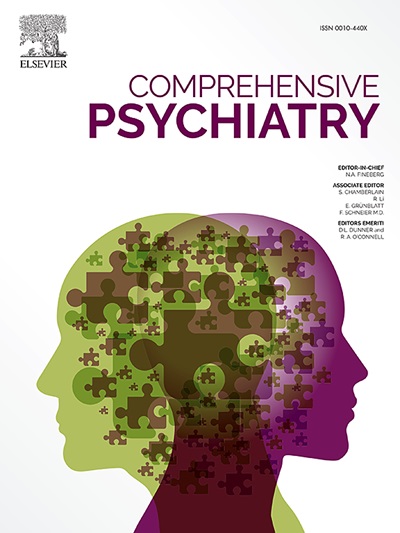长期难民情况下的养育子女与心理健康:系统性审查
IF 4.2
2区 医学
Q1 PSYCHIATRY
引用次数: 0
摘要
背景难民的养育行为深受其心理健康的影响,而心理健康又受其流离失所状况的影响。方法我们预先登记了我们的研究方案,并从10个电子数据库中筛选了22种语言的文件、16个国际人道主义组织的报告以及72个 "收容 "长期难民的国家中每个国家的前100个网站中的特定地区内容。我们的筛选标准是报告长期处于难民状况的难民的养育子女和父母心理健康数据的实证性论文。结果 我们共筛选了18125份文件,并纳入了30项研究。我们发现了一个普遍的途径,将长期难民状况中宏观层面的压力(如行动限制和证件问题)与抑郁和焦虑症状联系起来,进而导致消极的养育行为。此外,在父母心理健康和养育子女的方式上,也观察到了特定文化的途径。情境因素(如过度拥挤)和关系因素(如配偶关系)调节了这两种途径。研究中存在的偏差包括:对特定的长期难民情况的代表性过高、过度依赖自我报告数据,以及过分关注母亲而忽视父亲和其他照顾者。需要进行纵向研究,以澄清特定长期难民情况下宏观层面的具体压力因素与父母心理健康和做法之间的方向性和因果关系。在设计有关难民养育子女和父母心理健康的研究时,很少咨询难民或让他们参与其中。 结论在认识到长期难民状况、父母心理健康和养育子女之间的现有联系时,我们的系统性综述呼吁转变思维:从仅仅关注影响 "难民养育子女 "的微观方面,转变为理解和解决导致难民养育子女的更广泛的宏观层面的压力因素。我们呼吁开展更大规模的长期研究工作,考虑各种长期难民状况,加大对科学交流和政府外交的投入,以及各国更有力地实施持久解决方案,以减轻难民父母的痛苦和消极养育方式的根源。本文章由计算机程序翻译,如有差异,请以英文原文为准。
Parenting and mental health in protracted refugee situations: a systematic review
Background
Refugees' parenting behaviour is profoundly influenced by their mental health, which is, in turn, influenced by their situation of displacement. Our research presents the first systematic review on parenting and mental health in protracted refugee situations, where 78% of all refugees reside.
Methods
We pre-registered our protocol and screened documents in 22 languages from 10 electronic databases, reports by 16 international humanitarian organisations and region-specific content from the top 100 websites for each of the 72 countries that ‘host’ protracted refugees. Our criteria were empirical papers reporting parenting and parental mental health data on refugees who are in a protracted refugee situation. Studies including only internally displaced or stateless persons were excluded.
Results
A total of 18,125 documents were screened and 30 studies were included. We identified a universal pathway linking macro-level stressors in protracted refugee situations, such as movement restrictions and documentation issues, to symptoms of depression and anxiety, which, in turn, led to negative parenting practices. Addtionally, culture-specific pathways were observed in the way parental mental health and parenting were expressed. Situational (e.g., overcrowding) and relational factors (e.g., spousal dynamics) modulated both of these pathways. Biases in the research included the over-representation of specific protracted refugee situations, overreliance on self-reported data, and a heavy focus on mothers while neglecting fathers and other caregivers. Longitudinal research is needed to clarify the directionality and causality between specific macro-level stressors in a given protracted refugee situation and parental mental health and practices. Refugees were rarely consulted or involved in the design of research about their parenting and parental mental health.
Conclusion
In recognising the existing links between protracted refugee situations, parental mental health, and parenting, our systematic review calls for a shift in thinking: from focusing solely on the micro aspects that affect ‘refugee parenting’ to understanding and tackling the broader macro-level stressors that drive them. We urge for larger and long-term research efforts that consider diverse protracted refugee situations, greater investment in science communication and diplomacy with governments, and stronger implementation of durable solutions by states to alleviate the roots of refugee parents' distress and negative parenting practices.
求助全文
通过发布文献求助,成功后即可免费获取论文全文。
去求助
来源期刊

Comprehensive psychiatry
医学-精神病学
CiteScore
12.50
自引率
1.40%
发文量
64
审稿时长
29 days
期刊介绍:
"Comprehensive Psychiatry" is an open access, peer-reviewed journal dedicated to the field of psychiatry and mental health. Its primary mission is to share the latest advancements in knowledge to enhance patient care and deepen the understanding of mental illnesses. The journal is supported by a diverse team of international editors and peer reviewers, ensuring the publication of high-quality research with a strong focus on clinical relevance and the implications for psychopathology.
"Comprehensive Psychiatry" encourages authors to present their research in an accessible manner, facilitating engagement with clinicians, policymakers, and the broader public. By embracing an open access policy, the journal aims to maximize the global impact of its content, making it readily available to a wide audience and fostering scientific collaboration and public awareness beyond the traditional academic community. This approach is designed to promote a more inclusive and informed dialogue on mental health, contributing to the overall progress in the field.
 求助内容:
求助内容: 应助结果提醒方式:
应助结果提醒方式:


